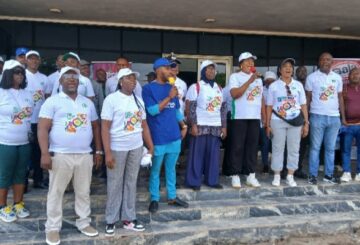 The Federal High Court in Abuja on Friday ordered the Minister of Petroleum Resources, President Muhammadu Buhari, to grant the renewal of the Oil Mineral Lease 11 to Shell Petroleum Development of Nigeria without the reduction in the size of its field coverage.
The Federal High Court in Abuja on Friday ordered the Minister of Petroleum Resources, President Muhammadu Buhari, to grant the renewal of the Oil Mineral Lease 11 to Shell Petroleum Development of Nigeria without the reduction in the size of its field coverage.
Justice Taiwo Taiwo, in his judgment delivered on Shell’s suit, however, ruled that the renewal would be for 20 years and not 30 years as requested by the company
The judge cited the provision of Paragraph 13(1) of the 1st Schedule of the Petroleum Act to support his decision.
The judge held that under the law, given that the SPDC had paid all the rents and royalties and met all the obligations under the OML, including applying in writing for the renewal not later than 12 months before the expiration of the OML, it was mandatory for the minister to grant the renewal.
The judge ruled, “The defendants are hereby compelled to grant the renewal of the OML 11 but it shall be in accordance with the provision of paragraph 13(1) of the Petroleum Act, as regards the period of the OML,” adding, “there shall be no reduction on the OML 11 as being contemplated by the defendants.”
The defendants joined in the suit are the Minister of Petroleum Resources and the Minister of State for Petroleum Resources.
President Muhammadu Buhari is also the Minister of Petroleum Resources.
Shell was said to have been granted the OML 11 in 1989, subject to subsequent renewal for 20 years, after the expiration of the first 30 years.
The first 30 years period ended in June 2019.
The Department of Petroleum, acting for the minister, had refused to grant a renewal application submitted by Shell.
Justifying the DPR’s refusal to grant the renewal, the defendants, through the Head of the Legal Services of the Ministry of Petroleum Resources, Mr Mohammed Diri, contended that the oil field of 3,095sqkm in size was beyond what could be approved as a single oil block.
According to the defendants, the size ascribed to the OML is about three times the standard size of 1,295sqkm of an oil block.
The defendants also maintained that contrary to the claim by the plaintiffs, the renewal could only be for 20 years and not 30 years.
They contended that the minister could decline to grant a renewal of an OML when there was any threat to the national security and sovereignty of Nigeria.
But the SPDC maintained that there was no cogent reason offered by the government in declining to grant the OML renewal to cover the whole of the designated field.
It said it had paid the renewal fee of $2m, expended huge investments on the field and met all the conditions under the OML.
Justice Taiwo ruled on Friday that the company, having met all the conditions for the renewal of the OML, under Paragraph 13(1) of the Petroleum Act, it was a “legitimate expectation” of the plaintiff that its request would be granted.
The judge added that there was no valid reason presented by the defendants to justify the reduction of the OML as the defendants had planned to do with reference to the Petroleum (Drilling and Production) Regulations.
The judge said that the regulation was subsidiary legislation and could not supersede the Petroleum Act, adding that the defendants only provided the explanation regarding the size of the OML in a letter prepared while the case of the plaintiff had already been filed.
He explained that any evidence created during the pendency of a suit would not be admissible under the Evidence Act.
He said, “It is mandatory for the minister to grant the renewal of the OML 11 when the conditions have been met. There is nothing presented before me by the defendants to show that the plaintiff has not met the conditions.”
He also said the defendants placed no material before the court to show the existence of any threat to national security or Nigeria’s sovereignty.
The judge said the court was bound by the rules made under the law of the land.


